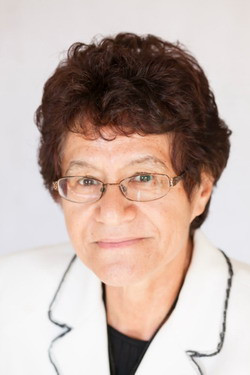A tikanga Māori-based intervention and training programme to help Māori women address their problem gambling is now being used by support organisations and clinicians after studies in Auckland and the Bay of Plenty showed encouraging results.
Research consultant Dr Laurie Morrison (Ngāti Whakaue, Te Arawa) developed the Ngā Pou Wāhine intervention to address gambling misuse for Māori wāhine with support from a HRC Erihapeti Rehu-Murchie Postdoctoral Fellowship.
The intervention was first piloted in problem gambling organisations in Napier and Wellington before being delivered as a wānanga over four weeks in Auckland, Rotorua, and Tauranga. It was carried out through AUT University’s Taupua Waiora Centre for Māori Health Research.
Of the 35 out of 41 women who completed the intervention, most were at the end or midway through counselling for gambling misuse, with a smaller number only just beginning to address their problem.
Dr Morrison says Māori wāhine have been identified as an at-risk group, especially when it comes to pokie machine gambling. She says previous interventions to decrease gambling misuse in the Māori population have been unsuccessful largely due to their lack of a culturally validated component.
"Ngā Pou Wāhine is a framework based in te ao Māori that uses Robyn Kahukiwa’s eight pou [posts] to guide Māori wāhine looking for a process to help them change their behaviour. Each pou represents a stage of journey toward self-empowerment that Māori wāhine can make following gambling misuse," explains Dr Morrison.
The women’s belief in their ability to succeed in specific situations (coined ‘self-efficacy’) significantly increased over all indicators at the end of the intervention, while their position on the problem gambling severity index – a measure of where someone fits on the gambling continuum – and the amount of money spent or lost on gambling decreased markedly.
"The positive feedback we received from the wāhine in their evaluations was amazing. They reported that the intervention upheld tikanga Māori and was practical, culturally relevant, safe, and enabled sharing and whakawhanaungatanga (connectedness)," says Dr Morrison.
The research findings highlight the importance of social and health services support and ongoing follow-up by gambling counsellors for preventing relapses.
"We identified a number of psycho-social issues that suggest this intervention could be adapted to include overlapping issues such as violence, sexual abuse, psychological issues, parenting and child health, and alcohol and other drugs," says Dr Morrison.
Dr Morrison is currently working with a Māori community psychologist delivering programmes to female inmates in South Auckland to investigate the possibility of taking the intervention into women’s prisons. She has also teamed up with Tipu Ora in Rotorua, an independent Lead Maternity Carer (LMC), to redesign the Ngā Pou Wāhine intervention into a framework to empower Māori wāhine’s maternal literacy.
